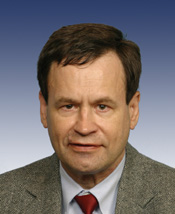A Quote by Linda Grant
I realized how for all of us who came of age in the late sixties and early seventies the war was a defining experience. You went o r you didn't, but the fact of it and the decisions it forced us to make marked us for the rest of our lives, just as the depression and World War II had marked my parents.
Related Quotes
There is a myth that the New Deal programs on their own pulled the US out of the Great Depression and created the conditions for the economic boom after World War II. As an economist, I can tell you, that is not true. In reality, it was mainly World War II that launched the boom - the massive war mobilization, the horrifying destruction and death caused by it, and then the reconstruction in its aftermath. he US was the only advanced capitalist country that was not bombed during the war.
'Our parents' generation had it a lot tougher than we did. They had to live through the Depression, World War II, and then they had to, you know, try to pick up the pieces of their lives and bring up their children. And, it was a great example for us. I guess we grew up with a certain amount of the ethics our parents had, which is, you know: work hard, make your own way, be independent.
Because the US has control of the sea. Because the US has built up its wealth. Because the US is the only country in the world really not to have a war fought on its territory since the time of the Civil War ... Therefore we can afford mistakes that would kill other countries. And therefore we can take risks that they can't ... the core answer to why the United States is like this is we didn't fight World War I and World War II and the Cold War here.
My parents, like others of "The Greatest Generation" who lived through the Great Depression and World War II, wanted to provide the best possible life for their children. My mother and father both attended college but dropped out to earn a living during the Depression, working the rest of their lives at blue-collar work.
World War II was really unusual, because America was in the Great Depression before. So the war did help the US economy to get securely out of this decline. This time, the war [in Iraq] is bad for the economy in both the short and long run. We could have spent trillions in research or education instead. This would have led to future productivity increases.
World War II made war reputable because it was a just war. I wouldn't have missed it for anything. You know how many other just wars there have been? Not many. And the guys I served with became my brothers. If it weren't for World War II, I'd now be the garden editor of The Indianapolis Star. I wouldn't have moved away.
To thousands of elder women in the late sixties and early seventies [the private women's club movement] came like a new gospel ofactivity and service. They had reared their children and seen them take flight; moreover, they had fought through the war, their hearts in the field, their fingers plying needle and thread. They had been active in committees and commissions, the country over; had learned to work with and beside men, finding joy and companionship and inspiration in such work. How could they go back to the chimney-corner life of the fifties?







































